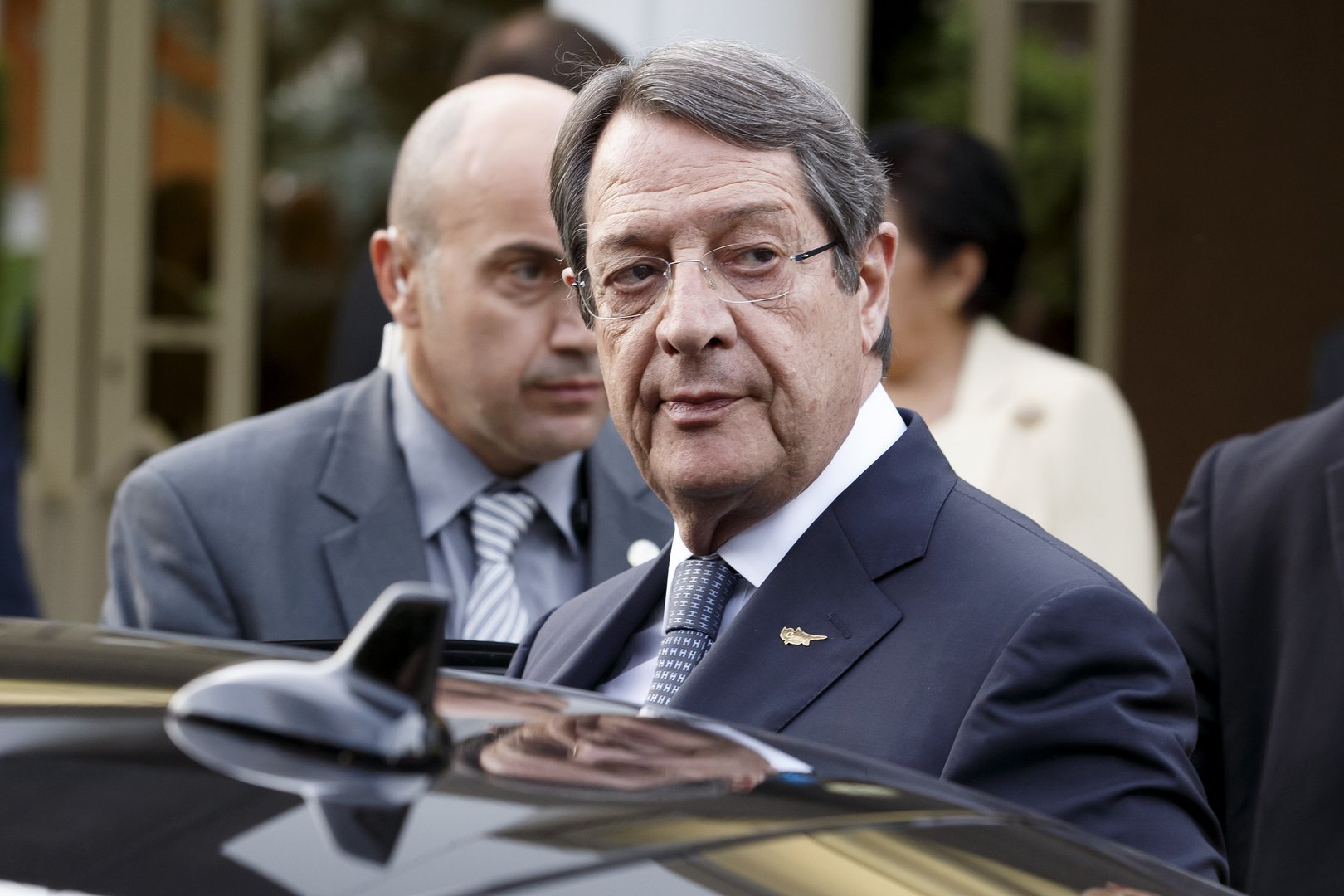Former president Nicos Anastasiades attacked the leadership of his own party, Disy, for “adopting Turkey’s narratives” on the Cyprus problem and for “distancing” itself from the government he led between 2013 and 2023.
In a letter to incumbent Disy leader and House president Annita Demetriou, which was published by various media outlets on Monday, he said he is “watching with great disappointment the distancing of Disy from the actions of the ten-year Anastasiades-Disy government”.
He argued that his own government “not only rescued the bankrupt state but also scored many achievements which contributed to the rebirth of the Republic of Cyprus”.
“I am sad to note that the distancing also concerns the management of the great national issue, by adopting hearsay witnesses who, for their own reasons, are always willing to adopt Turkey’s narratives, supposedly for the sake of the national ‘good’,” he said.
He said he had added “a documented article, based on the minutes kept by the United Nations, in the hope of understanding the reasons for the collapse of the most promising attempt to resolve the Cyprus problem at Crans Montana”.
Anastasiades’ letter came after Disy had not issued a condemnation of former Famagusta city councillor-in-exile Andreas Kazamias, who had made a controversial speech at an event held by the Greek Cypriot municipality-in-exile earlier this month to mark 51 years since Turkey’s invasion of northern Cyprus.
Kazamias had been critical of the stances of governments past and present on the Cyprus problem and other issues, and decried “the fact that political careers have been built on the back of a bleeding Famagusta”.
He also stated that “we had opportunities” to solve the Cypus problem.
“We know Turkey, and saying that Turkey’s intransigence to blame is the easy thing to do, and it that Turkey really is to blame. We have learnt, however, that this also applies to some of us. Every time the name ‘Famagusta’ was written on negotiation maps, someone hesitated. Someone was afraid. Someone said ‘no’ without, in essence, asking us,” he said.
Kazamias’ speech had drawn fierce criticism from Diko and then from mayor-in-exile Simos Ioannou, but Disy had elected not to react, thus drawing the ire of Anastasiades, who had expected his party to defend his record.
The talks at Crans Montana, a small town in southeastern Switzerland, were the most recent formal negotiations to be held with the aim of solving the Cyprus problem and were abruptly halted and never resumed in July 2017.
News agency Reuters at the time cited a source which said that United Nations Secretary-General Antonio Guterres had “finally called a halt at 2am after a session marred by yelling and drama”.
Since then, many who were party to the talks have said it was Anastasiades who left the negotiation table, with some reports in the intervening years suggesting that Russian Foreign Minister Sergei Lavrov was involved in “sabotaging” the talks.
Anastasiades has denied that he is to blame for the collapse of talks at Crans Montana, instead saying earlier this year that Turkey’s refusal to accept an abandonment of the Treaty of Guarantee, which allows Cyprus’ three guarantor power to use force to intervene on the island should its legal order be disrupted.
“I will not comment at this stage on the unsubstantiated allegations that the conference was interrupted because the former president allegedly abandoned the negotiations, which is why the talks collapsed,” he said, adding that he would “address this matter later”.
Last month, former Turkish Cypriot leader Mehmet Ali Talat had said that it was Israeli Prime Minister Benjamin Netanyahu who had convinced Anastasiades to collapse the negotiations.
“The reason Anastasiades flipped the table at Crans Montana is because Netanyahu said, ‘are you crazy? Why would you include Turkish Cypriots in the government? Why would you make them partners? Now, when you are governing Cyprus and representing all of Cyprus globally, what would the Turkish Cypriots be doing there?’,” he recounted.
He said he had been told this “by Greek Cypriots”, before going on to point out that relations between the Republic of Cyprus and the State of Israel are “improving”.






Click here to change your cookie preferences